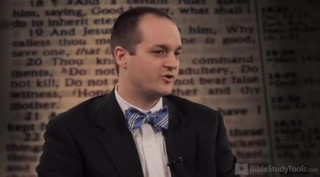
- Recent Translations
- All Translations
Judas 1:5
Share
Settings
Judas 1:5 Meaning and Commentary
I will therefore put you in remembrance, though ye once know
this
The Alexandrian copy, and some others, and the Vulgate Latin version, read, "knew all things"; but rather it is to be restrained by the following instance of, God's vengeance on unbelievers; which with others is produced, to vindicate the divine conduct in the condemnation of the above persons, and to show that that is certain, and may be expected, since God has always dealt thus with such persons; and this they knew by reading of the Scriptures; at least they had known it once, though it might now be forgotten by them; and they had known it once for all; they had been perfectly acquainted with it; which is said, lest the apostle should be thought to write to persons ignorant, and rude in knowledge, and to show that he wrote nothing new and unheard of, and so should have the more weight and influence upon them; and he thought fit to remind them of it, though they had known it: it is one part of the work of the ministers of the word to put people in mind of what they have known; which is necessary, because of the inattentiveness of hearers, their forgetfulness, and loss of knowledge, and the weakness of some capacities to take in, and retain things; and if the judgment is not more informed hereby, yet the affections may be afresh raised, and grace be drawn out into exercise, and the mind be established and confirmed. The instance follows,
how that the Lord, having saved the people out of the land of Egypt;
that is, the people of Israel, who were the chosen people of God, a special people, above all others, and had peculiar privileges; these the Lord brought out of the land of Egypt, with an high hand, and a mighty arm, and saved them out of their bondage, and delivered out of their oppressions and afflictions: the Alexandrian copy, and some others, the Vulgate Latin, and Ethiopic versions, instead of "the Lord", read "Jesus": and yet, though they were a special people, and notwithstanding this wonderful deliverance, and great salvation, he
afterward destroyed them that believed not;
their carcasses fell in the wilderness by one judgment or another upon them; so that of all that came out of Egypt, but two entered into the land of Canaan: this shows the evil nature of unbelief; and that God will not suffer sin to go unobserved in any; no outward privileges and profession will screen any from divine vengeance; God sometimes makes severe examples of mere nominal professors; nor must false teachers, deniers of Christ, and perverters of his Gospel, expect to go free: moreover, it may be observed, that God may do great things for persons, and yet after all destroy them; great riches and honours may be conferred on some, great natural gifts on others; some may seem as if they had the grace of God, and were brought out of spiritual Egypt, and enjoy great mercies and favours, and have many deliverances wrought for them, and yet at last perish.

